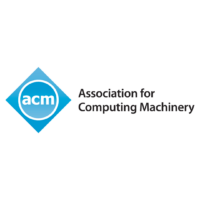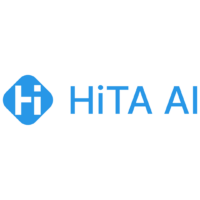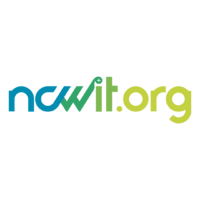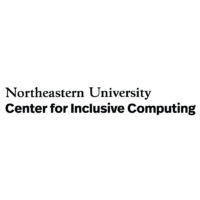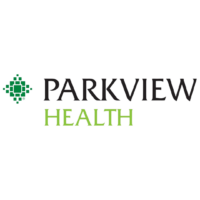
2024 CRA Conference at Snowbird
July 23-25, 2024
The Cliff Lodge, Snowbird Resort
Snowbird, Salt Lake, UT 84092, United States
Event Contact
CRA Staff
snowbird@cra.org
Array
Event Type
Event Category
The biennial CRA Conference at Snowbird is an invitation-only conference for the leadership of the North American computing research community.
Invitees: Academic leaders (e.g., department chair, college dean) of computing programs; leaders from U.S. industrial and government computing research laboratories and centers.
The Conference Site: The Snowbird Resort is located in the Wasatch Mountains about 30 miles from Salt Lake City. A top-rated ski resort in the winter, off-season at Snowbird offers hiking amidst beautiful scenery.
This Year at the Conference:
Conference Theme: Generative AI
The CRA Conference brings together leading minds in computing, including researchers, academics, and other industry leaders. The 2024 CRA Conference will explore generative AI, a topic that is not only timely, but one that cuts across the multiple constituencies that the CRA Conference serves.
2024 Tracks: Concurrent sessions will be fit into 4 tracks, with crossovers to enhance discussion: Academia, Industry, Research, and Society
Sponsors
Platinum Sponsor
Gold Sponsor
Silver Sponsors
July 23, 2024 (Tuesday)
| 08:00 AM | Pre-Conference Event: Extended New Chairs Workshop
| Wasatch This full-day workshop will give new computing department chairs some of the skills needed to lead their organizations and work with deans, provosts, and particularly their own faculty – the stuff they never told you in graduate school. This session will end at 4:45 pm. |
| 01:00 PM | Pre-Conference Event: Expanding Geographic and Institutional Diversity in CISE
| Superior The Directorate for Computer and Information Science and Engineering (CISE) commits to bolster CISE-funded research that reaches diverse and talented communities across our country, in particular organizations located within EPSCoR jurisdictions. NSF recognizes the incredible potential and contributions of these institutions to the U.S. science and engineering ecosystem and encourages the science and engineering community’s active involvement in furthering discoveries that benefit all Americans. CISE firmly believes in the immense untapped potential within EPSCoR jurisdictions and actively seeks proposals to enhance the participation of EPSCoR institutions in NSF-funded research. These contributions are pivotal in ensuring that research and innovation are not confined to geographical boundaries but are inclusive and collaborative across the nation. In this session, we will present and discuss some of the NSF/CISE initiatives for expanding geographic and institutional diversity in EPSCoR states. We would also like to hear from the constituent institutions about their needs and challenges for creating and expanding CISE-related research infrastructures and ecosystems in their jurisdictions and how NSF can be responsive in addressing those needs. Agenda: 1:00-1:15 pm: Welcome and introductions 1:15-2:00 pm: Spotlight on NSF programs in CISE (EPSCoR and MSI focused) 2:00-2:45 pm: Listening session 2:45-3:00 pm: Break 3:00-4:30 pm: Roundtables with NSF staff This session will end at 4:30 pm. |
| 04:00 PM | Pre-Conference Event: CRA-Industry "Meet-and-Greet" Meeting
| Primrose B CRA-Industry (CRA-I) invites all conference participants affiliated with or working in industry, including those with dual appointments, to join us for a special industry ‘Meet-and-Greet’ prior to the main conference kickoff. The aim is to spotlight the expanding influence of industry within CRA, offer a preview of the engaging industry track sessions scheduled throughout the conference, and facilitate networking opportunities for industry professionals prior to the conference’s commencement. Additionally, the committee is hoping to glean insights into attendees’ expectations and aspirations for the event. This gathering promises to set the stage for a productive and engaging conference. This session will end at 6:00 pm. |
| 05:00 PM | Pre-Conference Event: CRA 101
| Ballroom 2 Ensure you make the most of your unit’s CRA membership by joining Executive Director and CEO Tracy Camp for an engaging overview of CRA and its committees, programs, awards, and events. Gain insight into the opportunities you and your team have to engage with CRA at every career stage – from undergraduate to leader. CRA elected officers will also be available to answer questions and hear your comments about what CRA can do to improve your membership ROI. This session will end at 5:30 pm. |
| 06:00 PM | Welcome Reception | Atrium Patio |
| 07:00 PM | Dinner Talk: Welcome and Diversity
| Ballroom Welcome to Snowbird followed by a panel addressing academic freedom/broadening participation in computing in the current local and national landscape. Session Chair: Maria Gini (University of Minnesota), Rachel Pottinger (University of British Columbia), and Divesh Srivastava (AT&T) Speakers: Kamau Bobb (Georgia Tech), Carla Brodley (Northeastern University), Jeff Forbes (National Science Foundation) |
July 24, 2024 (Wednesday)
| 07:00 AM | Breakfast | Conference Center Terrace Tent |
| 08:30 AM | CRA Updates and Awards
| Ballroom Hear the latest on CRA and its subcommittees’ activities and collective impact in service to our mission. Join us in congratulating members of the computing research community who have won a CRA award. Speaker: Tracy Camp (CRA) |
| 09:30 AM | Disability and Innovation: A Conversation with Haben Girma
| Ballroom Session chair: Katie Siek (Indiana University) Speaker: Haben Girma Disabled people are the largest historically underrepresented group, numbering over one billion worldwide. Reaching a group of this scale creates value for everyone.
Numerous economic and social barriers currently exist for disabled people. A study by the United Nations found that about 97% of websites have access barriers. These digital barriers create an information famine, limiting employment and educational opportunities for disabled people around the world.
Technology exists to render digital information accessible. Blind individuals use software called screen readers that allow the content of websites, apps, and documents to be read aloud or displayed in Braille on a connected Braille device. Captioning on videos provides Deaf viewers access to audio content. Programming for accessibility allows a greater number of people to access your videos, webpages, articles, apps, and other information.
Organizations that prioritize accessibility benefit by gaining access to a much larger audience, improving the experience for both disabled and nondisabled people, and facilitating further innovation.
|
| 10:30 AM | Break | Ballroom Lobby |
| 11:00 AM | Parallel Tracks
Academia: Best Practices of Hiring Teaching Track Faculty Members Location: Primrose Moderator: Geoffrey Herman (University of Illinois at Urbana-Champaign) Panelists: Nancy Amato (University of Illinois at Urbana-Champaign), Victoria Dean (Olin College), and Michael Hilton (Carnegie Mellon University) The current hiring landscape for teaching faculty is a perfect storm, where two issues – (1) increasing demand but a lack of trained candidates and (2) highly diverse job expectations – combine to create a job search that can be overwhelming for teaching faculty candidates and disappointing for departments of computing. This panel discussion will bring to light the challenges of hiring teaching faculty from a variety of perspectives and discuss principles underlying some best practices for the hiring process, as described in CRA-E’s “Best Practices for Hiring Teaching Faculty in Research Computing Departments” white paper. Industry: Best Practices in Industry Affiliate Programs Location: Ballroom 3 Organizers: Vivek Sarkar (Georgia Tech) Panelists: Alex Aiken (Stanford University), Beth Mynatt (Northeastern University), Shriram Revankar (Dolby Laboratories), Jaime Teevan (Microsoft) Recent trends have prompted the need for a fresh look at the relationships between academia and industry in Computing Research, and for expanding the opportunities offered by Industry Affiliate Programs in academia to explore new partnership models. These trends include increasing industry demand for technical talent from academia (including trends like dual employment), as well as changes in the academic environment that place an increasing value on industry engagement. In addition, recent government priorities include an increased focus on accelerating technology translation, growing the STEM workforce, and increasing the participation of HBCUs, MSIs, TCUs, and community colleges in the future of Computing.
Given these trends, Snowbird 2024 provides an opportune time to re-examine best practices in Industry Affiliate Programs in academia. While there can be a mix of positive and negative aspects in current industry-academia engagements, the positives far outweigh the negatives on both sides. Further, there is an opportunity for both sides to broaden the scope of Industry Affiliate Programs to go beyond student recruiting and research sponsorship and grow these programs to multi-faceted partnerships that are synergistic with recent trends in Computing Research. With participants from both academia and industry, this panel will address multiple facets and opportunities in best practices for Industry Affiliate Programs.
Research: Growth with Impact: Mission-focused Research, Evolving Sponsor Models, and Innovative Funding Approaches in Academia Location: Ballroom 2 Speakers: Chaitanya Baru (NSF), Nadya Bliss (Arizona State University), Alastair Thomson (ARPA-H) Matt Turek (DARPA) The U.S. innovation ecosystem is the envy of the world, and university-led computing research is central to its functioning. While speed of adoption is imperative to keep up with societal challenges, that must be balanced with ethical and security concerns. This balancing requires new models for building public/private partnerships on science and technology research, development and transition. For computing departments, this offers tremendous opportunity to both impact grand challenges in national security, economics, sustainability, and other areas, while broadening potential research funding sources. This panel will feature leaders from the National Science Foundation, the Defense Advanced Research Projects Agency, the Advanced Research Projects Agency – Health, and academia to discuss new approaches to mission-focused research. Society: Current Challenges in DEI: Knowledge Sharing and Networking Location: Superior Organizer: Rachel Pottinger (University of British Columbia) Ensuring DEI in computing is a challenge. On top of the historic and ongoing difficulties that remain, many CRA members who are interested in DEI are finding that the political climate makes working on DEI difficult. This session does not have all of the answers, but is designed to be space for interested individuals to come and talk about current issues in DEI. The session will be run around small groups for brainstorming, followed by sharing with the larger group. Anyone with topics that they would like to see discussed should fill out the form at https://forms.gle/69WHx2S6Y2KEfzXW7 or put them in the box labeled “Challenges in DEI discussion prompts” at the registration desk. |
| 12:30 PM | Lunch | Conference Center Terrace Tent |
| 02:00 PM | Lightning Talks from Future CRA Leaders
| Ballroom 2 & 3 Session Chair: Rachel Pottinger (University of British Columbia)
New at the 2024 CRA Conference is the Future CRA Leaders Program – a cohort of researchers who have demonstrated the potential to be future CRA leaders in the field. They are attending the conference to connect with CRA leaders in attendance, gain insights, foster collaborations, and share their innovative work. Join us for an electrifying session of Lightning Talks presented by the Future CRA Leaders! These dynamic two-minute presentations – accompanied by a single slide – will feature cutting-edge research, inspiring developments, and innovative ideas. Be there to support and connect with these talented researchers in our community. |
| 03:00 PM | Break | Ballroom Lobby |
| 03:30 PM | Networking/Hikes
| Outside Activity - Meeting Place: Atrium Patio Beginner/moderate guided hikes (advance registration required) begin at 3:15 PM Self-guided hike: route suggestions |
| 06:30 PM | Dinner Talk, Entertainment
| Ballroom Session Chairs: Rachel Pottinger (University of British Columbia) and Diana Franklin (University of Chicago) Speaker: Peter Harsha (CRA) As you enjoy your dinner, Peter Harsha will present a talk on “Making a Federal Case for Computing.” Following Peter’s talk, you are invited to play cards with your tablemates. You can choose to play betting games (blackjack or poker), traditional card games (Hearts or Spades), or just socialize! Decks of cards and poker chips will be available at the tables labeled “Card Games”. We’ll also provide cards and rulesheets of several popular options. Not interested? Then grab a seat at a “Socialize” table instead! |
July 25, 2024 (Thursday)
| 07:00 AM | Breakfast | Conference Center Terrace Tent |
| 08:30 AM | Biden-Harris Administration Actions on AI and Building Talent
| Ballroom Session Chair: Maria Gini (University of Minnesota) Speaker: Deirdre Mulligan, Principal Deputy U.S. Chief Technology Officer and the Director of the National Artificial Intelligence Initiative Office (NAIIO) at the White House Office of Science and Technology Policy Deirdre K. Mulligan will discuss Biden-Harris Administration actions on artificial intelligence, including the Executive Order on the Safe, Secure, and Trustworthy Development and Use of Artificial Intelligence. She will also discuss the Federal Government-wide AI talent surge to accelerate the placement of key AI and AI-enabling talent in high-priority areas and to advance agencies’ data and technology strategies, as well as efforts to build institutional and cultural support in the tech ecosystem. |
| 09:30 AM | Thinking Like a Language Model
| Ballroom Session Chair: Divesh Srivastava (AT&T) Speakers: Fernando Pereira (Google) We survey the development of generative AI from Markov models and phrase-based machine translation to their current state and future prospects. We explore potential and pitfalls through simple worked examples that illustrate informal conceptual hypotheses and recent theoretical results. But above all, we argue that nothing in generative AI makes sense except in the light of the human cultural output that models are trained on. Mukund Sundararajan at Google DeepMind is co-author of this work. |
| 10:30 AM | Break | Ballroom Lobby |
| 11:00 AM | Parallel Tracks
Academia: The Future of Graduate Education Location: Primrose Organizers: Gillian Hayes (University of California, Irvine) Panelists: Kinnis Gosha (Morehouse College), Emily Miller (Association of American Universities), Steve Swanson (University of California, San Diego), Alexander Wolf (University of California, Santa Cruz) Graduate education in the US and Canada is at a critical turning point with changing demographics, rising costs, and increasing expectations all putting pressure on different points in the system. This panel will address challenges and opportunities in graduate education with opportunities for audience discussion covering the following topics:
Industry: Building Mutually Reinforcing Partnerships with Industry Location: Ballroom 3 Speakers: Ann Gates (University of Texas at El Paso) and Enrico Pontelli (New Mexico State University) Partnerships between industry and academia are crucial in many ways. They lead to building a competitive workforce, addressing collaborative use-inspired research problems, and engaging diverse students and communities. The Computing Alliance of Hispanic-Serving Institutions (CAHSI) has a long history of establishing partnerships with industry efforts that are mutually reinforcing. This session features several successful partnerships. In addition, it presents concrete examples that elucidate the importance of defining communication mechanisms, engaging partners, structuring accountability, and building trust. Participants will leave with actionable items. Research: Research Integrity in Computing Location: Ballroom 2 Organizers: Nancy Amato (University of Illinois Urbana-Champaign) and Alex Aiken (Stanford University) Panelists: Lorrie Cranor (Carnegie Mellon University), Michael Littman (NSF), Gene Spafford (Purdue University), Divesh Srivastava (AT&T Labs) Research integrity concerns the formal rules and norms about what is acceptable in the preparation, submission, and peer review of research publications. The computing research community relies on the integrity of authors, reviewers, conference chairs, and journal editors to function properly and to fulfill its core purpose of advancing knowledge. In the last few years there have been increasing concerns that violations of these rules and norms are on the upswing.
Last year the CRA charged a working group with examining the issues around research integrity, which resulted in a report. This session brings together a panel to discuss the findings of the working group, reflect on what has changed a year on from the report, and engage with the audience in a conversation about what the community can do to strengthen integrity in computing research.
Society: The Security Risks of Generative AI: From Identification and Mitigation to Responsible Use Location: Superior Organizers: Somesh Jha (University of Wisconsin), Mihai Christodorescu (Google) Panelists: John Mitchell (Stanford University), Rebecca Wright (Barnard College), Matt Turek (DARPA) Generative AI (GenAI) techniques, such as large language models (LLMs) and diffusion models, have shown remarkable capabilities such as in-context learning, code-completion, and text-to-image generation and editing. These excitingly broad capabilities also present a dual-use dilemma—the new technology has the potential to be used not only for good but also by malicious actors to improve and accelerate their attacks. In this panel, we will discuss the risks of GenAI and ways to mitigate them as GenAI continues to revolutionize computer science and many other fields. Some of the questions we will debate include:
|
| 12:30 PM | Lunch | Conference Center Terrace Tent |
| 02:00 PM | Parallel Tracks
Academia: Organization Strategies for Growing and Supporting Computing and Information Science Disciplines Location: Primrose Speakers: Eunice Santos (University of Illinois at Urbana-Champaign), Kavita Bala (Cornell Bowers College of Computing and Information Science), Dennis Livesay (Michigan Technological University), and Keith Marzullo (University of Maryland) In early May, the CRA Deans Group held a workshop to take the pulse of the community on the drive to set up colleges of computing, data science, AI and the like. In this session, we recap the points that were made. What are the problems being addressed when new colleges and similar academic units are considered, what are benefits and risks of creating such units, what are the arguments made for and against them, and what are the issues they face as they grow? Industry: Dual Appointments: Straddling Academia and Industry Location: Ballroom 3 Organizers: Ron Brachman (Cornell Tech) and Eve Schooler (University of Oxford) Speakers: Magda Balazinska (University of Washington), Martial Hebert (Carnegie Mellon University), Julia Hirschberg (Columbia University/Amazon Scholar), Amit Jain (Boise State University), Gerard Medioni (Amazon) This session will delve into the transformative shift occurring in the landscape of academia-industry cooperation within computing research. Notably, faculty members are increasingly embracing dual appointments with industry, often leading to a shift in time allocation from traditional 20/80 industry/university splits to more balanced or industry-heavy models like 50/50 or 80/20. This shift is driven by a variety of factors, including the desire to tap into real-world data, access deployed products, collaborate with like-minded researchers, and enhance compensation. Our discussion will showcase the outcomes of a comprehensive community-wide survey on this subject, targeting expert panelists with specific questions derived from the survey and subsequent report. The conversation will emphasize the profound implications of contractual commitments, extended durations, and flexible engagements, presenting challenges related to intellectual property, conflicts of interest, and teaching, advising, and service commitments. Finally, during the Q&A session, the audience will have the opportunity to ask questions about their current concerns and make comments about their own solutions from the standpoint of their own industries and institutions. Panelists from various sectors and involvement levels, including those at the dean level, will provide valuable insights and perspectives. Research: Visioning New Grand Challenges for Computing Location: Ballroom 2 Organizers: Mary Lou Maher (CRA), Raj Rajaraman (Northeastern University), Bill Regli (University of Maryland), and the CCC Grand Challenges Task Force As computing and AI become ubiquitous and essential across all of society, can the community envision new types of Grand Challenges that can enable the broad advances needed to address the most significant problems of our time. Many disciplines have used challenges to create incredible instruments of discovery (LIGO, LHC, JWST) or outline broad agendas (NAE Grand Challenges 2013). Indeed, the computing community, and CRA, has considered the idea of challenges before but we are at a moment where we might consider the nature of today’s “Computing Challenges” as well as the processes by which we define them. In this interactive session, attendees will engage with panelists and one another in an effort to think about computing challenges in a new way and, hopefully, identify some areas in which there might be truly grand computing challenges that inspire and draw the broad community into our efforts. Society: Disability and Accessibility in the Age of Generative AI Location: Superior Organizers: Richard Ladner (University of Washington) and Raja Kushalnagar (Gallaudet University) Speakers: Kate Glazko (University of Washington) Panelists: Cecilia Aragon (University of Washington), Dhruv Jain (University of Michigan), Cynthia Bennett (Google) This session will address the ways that computing researchers who have disabilities in both academia and industry can be supported to benefit computing fields. Additionally, it will address how generative AI impacts the disability community. |
| 03:30 PM | Break | Ballroom Lobby |
| 04:00 PM | Parallel Tracks
Academia: Visions for the Future of Computing Education Location: Primrose Organizer/Moderator: Ran Libeskind-Hadas (Claremont McKenna College) Panelists: Adrienne Decker (University at Buffalo), Diana Franklin (University of Chicago), Leo Porter (University of California San Diego), Alfred Spector (Massachusetts Institute of Technology), Mark Weiss (Florida International University) How should our curricula adapt to rapid changes in our field? This session will explore several visions for the future of computing education including both macroscopic views on revising computer science major programs as well as reports on case studies on LLMs in introductory courses, quantum computing curricula, and horizontal integration of computing in a natural sciences program. Industry: GenAI for Research and Discovery Location: Ballroom 3 Organizers: Elizabeth Bruce (Microsoft) and Ben Zorn (Microsoft) Speakers: Ann Gates (University of Texas at El Paso), Michael Littman (Brown University and NSF), Jing Liu (University of Michigan), Asu Ozdaglar (Massachusetts Institute of Technology), and Ronak Shah (NVIDIA) Generative AI opens up new opportunities to accelerate and enhance how we do research in all fields.The way we do research will change as well as how we educate and train the next-generation of researchers. In this session, we will examine specific examples of how GenAI transforms scientific research as well as how companies and universities are adopting GenAI tools as part of their research toolkit. Considering the great potential, we will discuss critical issues related to the widespread use of GenAI and how we can ensure responsible use and development. Computing researchers need to grasp these opportunities and provide guidance and leadership in scientific research areas beyond computing. Research: Government Impacts on (AI) Research and Development Location: Ballroom 2 Speakers: David Danks (University of California, San Diego) and Manish Parashar (University of Utah) Over the past few years, there have been a number of different government actions to help advance trustworthy AI, such as the Executive Order last fall. In this session, we will outline some of the recent governance efforts that are impacting academic and industry researchers. Substantial time will be reserved for Q&A and focused discussions about the risks and opportunities facing many different groups of computing researchers. Education/Research: Broadening Access to AI Resources through the NAIRR Pilot Location: Superior Organizer: Katie Antypas (National Science Foundation) Panelists: Jeff Forbes (National Science Foundation) and Julia Stoyanovich (New York University) The National AI Research Resource (NAIRR) is a concept for a national infrastructure that connects U.S. based researchers and educators to computational, data, software, model and user support resources necessary to power AI innovation and advance the AI ecosystem in responsible matter. NSF and collaborating agencies launched a pilot for the NAIRR launched in January 2024 as a proof-of-concept for the eventual full-scale NAIRR. The NAIRR pilot is focusing on supporting research and education across broad and diverse communities, while also serving as a vehicle for gaining insights that will refine the design of a full NAIRR. This talk will highlight opportunities for the community to get involved in the pilot by 1) applying to use NAIRR pilot resources 2) contributing to the NAIRR pilot infrastructure through demonstration projects and 3) helping to reach and train new communities on how to access and use NAIRR pilot resources. |
| 05:30 PM | Future CRA Leaders Reception
| Golden Cliff Attendance by invitation only. |
| 06:30 PM | Dinner Talk: Deep Learning Hardware: Past, Present, and Future
| Ballroom Session Chair: Divesh Srivastava (AT&T) Speaker: Bill Dally (NVIDIA) The current resurgence of artificial intelligence, including generative AI like ChatGPT and SORA, is due to advances in deep learning. Systems based on deep learning now exceed human capability in speech recognition, object classification, and playing games like Go. Deep learning has been enabled by powerful, efficient computing hardware. The algorithms used have been around since the 1980s, but it has only been in the last decade – when powerful GPUs became available to train networks – that the technology has become practical. Advances in DL are now gated by hardware performance. The operations needed to train a SOTA model have increased 10Mx in the last decade and is currently growing by 16x per year. In the last decade, GPU performance for deep learning has increased more than 1000x. Much of this gain was due to improvements in data representation starting with FP32 in the Kepler generation of GPUs and scaling to NV FP4 in the Blackwell generation. This talk will review this history and discuss further improvements in number representation including logarithmic representation, optimal clipping, and per-vector quantization. |
2024 Plenary Speakers
 Kamau Bobb (Senior Director of the Constellations Center for Equity in Computing, Georgia Tech)
Kamau Bobb (Senior Director of the Constellations Center for Equity in Computing, Georgia Tech)
Kamau Bobb is the founding Senior Director of the Constellations Center for Equity in Computing at Georgia Tech. He is the former Director of STEM Education Strategy and Research at Google. He is an engineer and science and technology policy scholar whose work focuses on the STEM enterprise, large educational systems, and the structural conditions that influence contemporary American life.
He brings to his current position a wealth of experience as a former Program Officer at the National Science Foundation (NSF). At NSF he was responsible for $30 million annually of investments targeted on improving computing and STEM education. In that role Dr. Bobb worked to help shape the national research agenda for effective means of delivering equitable and quality computational education to all students. He has worked with members of the Office and Science and Technology Policy in the Obama Administration to set the national strategy for STEM education at both post-secondary and secondary school levels. He was selected as a member of President Obama’s My Brother’s Keeper STEM + Entrepreneurship Taskforce to help U.S. cities craft strategies to engage young men and boys of color in the STEM landscape. Prior to his federal appointment, Dr. Bobb was the Director of the STEM Initiative for the University System of Georgia, a collaborative effort with the governor’s office to improve STEM education across the 30 public institutions serving approximately 325,000 students in the state.
Dr. Bobb holds a Ph.D. in Science and Technology Policy from Georgia Tech and M.S. and B.S. degrees in Mechanical Engineering from the University of California, Berkeley. He is a member of Leadership Atlanta Class of 2022 and sits on the Board of Trustees of Spelman College.
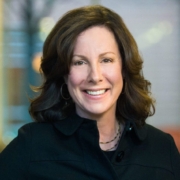 Carla E. Brodley (Dean of Inclusive Computing and the Founding Executive Director of the Center for Inclusive Computing (CIC),Northeastern University)
Carla E. Brodley (Dean of Inclusive Computing and the Founding Executive Director of the Center for Inclusive Computing (CIC),Northeastern University)
Carla E. Brodley is the Dean of Inclusive Computing and the Founding Executive Director of the Center for Inclusive Computing (CIC) at Northeastern University. A $50M initiative, the CIC funds and advises universities in the United States to create systemic, sustainable change to remove institutional barriers that impact the discovery, retention and persistence in computing.
A fellow of the Association for Computing Machinery (ACM), the Association for the Advancement of Artificial Intelligence (AAAI) and the American Association for the Advancement of Science (AAAS), Dean Brodley’s interdisciplinary machine learning research led to advances not only in computer science, but in many other areas including remote sensing, neuroscience, digital libraries, astrophysics, content- based image retrieval of medical images, computational biology, chemistry, evidence-based medicine, and predictive medicine.
Dean Brodley’s leadership positions include serving as program co-chair of the International Conference on Machine Learning, co-chair of AAAI, and serving as associate editor of Machine Learning, the Journal of AI Research, and the Journal of Machine Learning Research. She served on the Defense Science Study Group, the board of the International Machine Learning Society, the AAAI Council, the executive committee of the Northeast Big Data Hub, DARPA’s Information Science and Technology Board, as a member-at-large of the Section on Information, Computing, and Communication of AAAS, and as a member of the advisory committee for the NSF’s CISE Directorate. Currently she serves on the boards of the Mass Technology Leadership Council, and the Jackson Laboratory.
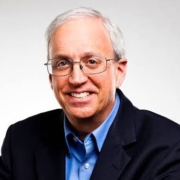 Bill Dally (Chief Scientist, NVIDIA)
Bill Dally (Chief Scientist, NVIDIA)
Bill Dally joined NVIDIA in January 2009 as chief scientist, after spending 12 years at Stanford University, where he was chairman of the computer science department. Dally and his Stanford team developed the system architecture, network architecture, signaling, routing and synchronization technology that is found in most large parallel computers today. Dally was previously at the Massachusetts Institute of Technology from 1986 to 1997, where he and his team built the J-Machine and the M-Machine, experimental parallel computer systems that pioneered the separation of mechanism from programming models and demonstrated very low overhead synchronization and communication mechanisms. From 1983 to 1986, he was at California Institute of Technology (CalTech), where he designed the MOSSIM Simulation Engine and the Torus Routing chip, which pioneered “wormhole” routing and virtual-channel flow control. He is a member of the National Academy of Engineering, a Fellow of the American Academy of Arts & Sciences, a Fellow of the IEEE and the ACM, and has received the ACM Eckert-Mauchly Award, the IEEE Seymour Cray Award, and the ACM Maurice Wilkes award. He has published over 250 papers, holds over 120 issued patents, and is an author of four textbooks. Dally received a bachelor’s degree in Electrical Engineering from Virginia Tech, a master’s in Electrical Engineering from Stanford University and a Ph.D. in Computer Science from CalTech. He was a cofounder of Velio Communications and Stream Processors.
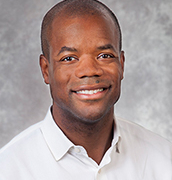 Jeff Forbes (Program Director – Education and Workforce, NSF)
Jeff Forbes (Program Director – Education and Workforce, NSF)
Jeff Forbes is the lead Program Director for the Education & Workforce program in the National Science Foundation’s Directorate for Computer & Information Science & Engineering, managing programs that address the critical and complex issues of education and broadening participation in computing. From 2001-2019, Jeff was on the faculty of Duke University where he was an Associate Professor of the Practice of Computer Science. He received his BS and PhD in computer science from Stanford University and the University of California, Berkeley, respectively. His research interests include computer science education, social information processing, and learning analytics.
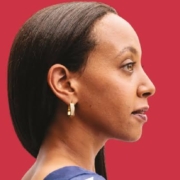
Haben Girma (Disability Rights Advocate)
The first Deafblind person to graduate from Harvard Law School, Haben Girma is a human rights lawyer advancing disability justice. President Obama named her a White House Champion of Change, and the World Health Organization appointed her Commissioner of Social Connection. She received the Helen Keller Achievement Award, a spot on the Forbes 30 Under 30 list, and TIME100 Talks. Haben believes disability is an opportunity for innovation, and she travels the world teaching organizations the importance of choosing inclusion.
Harnessing the power of the written word to spark advocacy, she wrote and published the book that became a bestseller. Haben: The Deafblind Woman Who Conquered Harvard Law takes readers on adventures around the world, including her parents’ homes in Eritrea and Ethiopia, building a school under the scorching Saharan sun, training with a guide dog in New Jersey, climbing an iceberg in Alaska, fighting for blind readers at a courthouse in Vermont, and talking with President Biden and President Obama at The White House. Warm, funny, thoughtful, and uplifting, this captivating book is a testament to Haben’s determination to resist isolation and find the keys to connection.
A spellbinding speaker, her keynotes have touched the stages of Apple, Bottega Veneta, Disney, Google, Microsoft, Oxford University, and many more. Her engaging presentations ignite audiences to make positive changes in their communities.
Haben was born and raised in the San Francisco Bay Area, where she currently lives. She enjoys dancing, walking in nature, and culinary adventures.
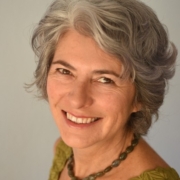 Deirdre Mulligan (Principal Deputy U.S. Chief Technology Officer and the Director of the National Artificial Intelligence Initiative Office (NAIIO) at the White House Office of Science and Technology Policy)
Deirdre Mulligan (Principal Deputy U.S. Chief Technology Officer and the Director of the National Artificial Intelligence Initiative Office (NAIIO) at the White House Office of Science and Technology Policy)
Deirdre K. Mulligan serves as Principal Deputy U.S. Chief Technology Officer at the White House Office of Science and Technology Policy. In this role, Mulligan leads the Tech Division within OSTP, working to ensure that digital technologies benefit all Americans and advance democratic values. Mulligan is a Professor at the School of Information at UC Berkeley and a Faculty Director of the Berkeley Center for Law & Technology. Her research focuses on protecting values including privacy, equity, and freedom of expression in sociotechnical systems. Prior to joining the School of Information, Mulligan was the first Director of the Samuelson Law and Technology Clinic and a Clinical Professor at UC Berkeley School of Law. She is a founding board member of the Partnership on AI, a founding member of the Global Network Initiative, and a former Commissioner on the Oakland Privacy Advisory Commission. She helped start the Center for Democracy and Technology, where she worked on key tech policy issues during the emergence of the commercial internet.
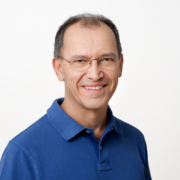 Fernando Pereira (VP and Engineering Fellow, Google)
Fernando Pereira (VP and Engineering Fellow, Google)
2024 Conference at Snowbird Organizing Committee:
Maria Gini (University of Minnesota) Co-Chair
Rachel Pottinger (University of British Columbia) Co-Chair
Divesh Srivastava (AT&T) Co-Chair
Tracy Camp (CRA)
Diana Franklin (University of Chicago)
Raquel Hill (Spelman College)
Jaime Teevan (Microsoft)
Click on the session title for a PDF version of the slides.
Plenary Sessions
Making a Federal Case for Computing
Thinking Like a Language Model
Deep Learning Hardware: Past, Present, and Future
Parallel Sessions – Academia
Best Practices of Hiring Teaching Track Faculty Members
Visions for the Future of Computing Education
Parallel Sessions – Industry
Building Mutually Reinforcing Partnerships with Industry
Dual Appointments: Straddling Academia and Industry
Gen AI for Research and Discovery
Parallel Sessions – Research
Research Integrity in Computing
Visioning New Grand Challenges for Computing
Government Impacts on (AI) Research and Development
Parallel Sessions – Society
The Security Risks of Generative AI: From Identification and Mitigation to Responsible Use
Current Challenges in DEI: Knowledge Sharing and Networking
Disability and Accessibility in the Age of Generative AI
Education/Research: Broadening Access to AI Resources through the NAIRR Pilot
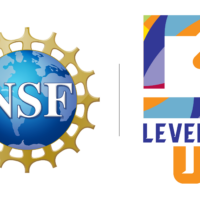 CRA Deans Meeting
CRA Deans Meeting




